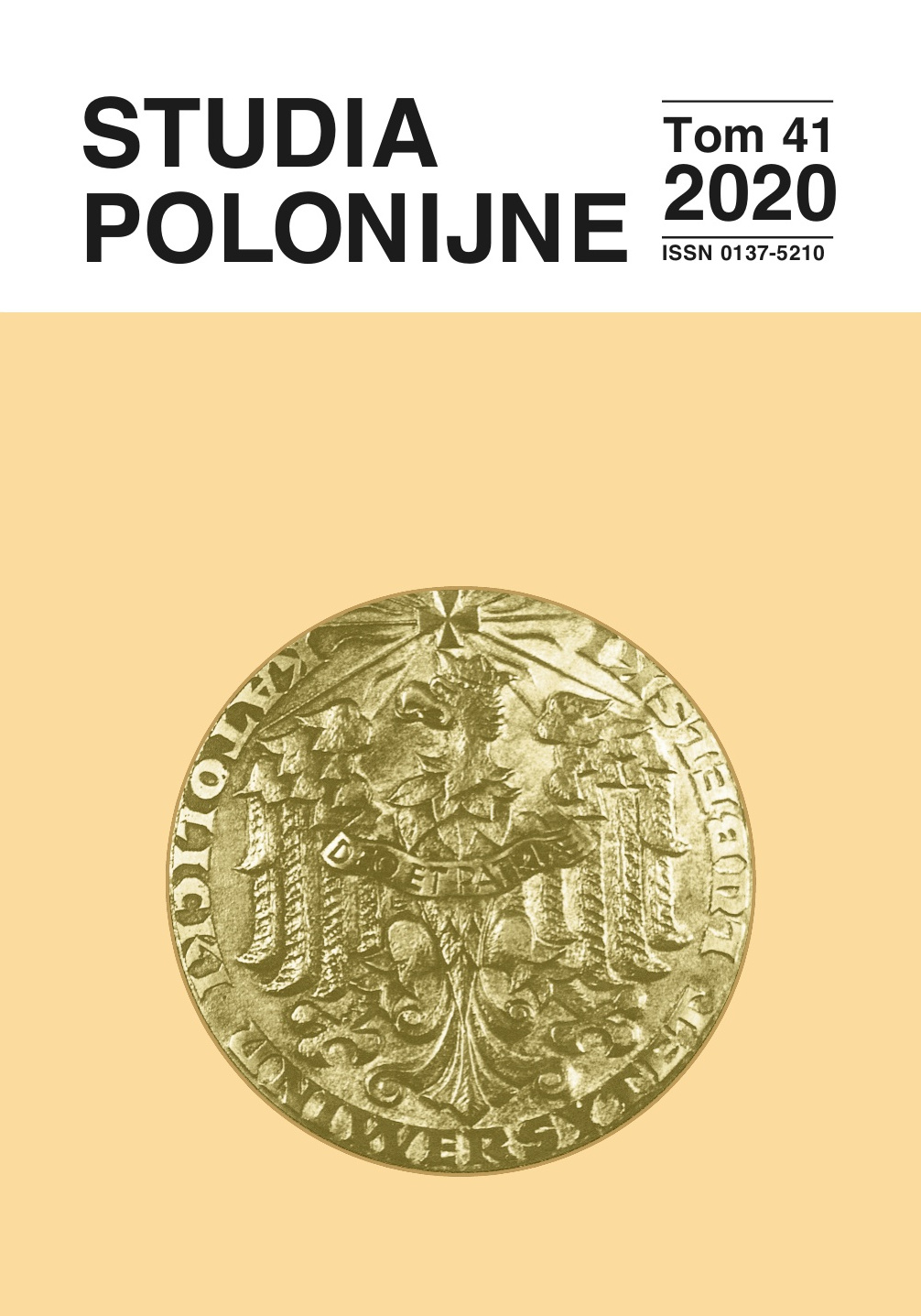Julia Ledóchowska and the Act of 5 November 1916
Main Article Content
Abstract
The aim of the article is to present the activity of Mother Urszula (Julia) Ledóchowska in Stockholm’s Polish Agency Committee (Polska förmedlingskommitten), established in mid-March 1916 at the time of the announcement of the Act of 5 November 1916, as well as the reaction of the Polish community living in Sweden to this manifesto, issued on behalf of the Emperors of Germany and Austria-Hungary and proclaiming the establishment of the independent Polish Kingdom. The author presents a range of attitudes among Polish activists in Stockholm and local politicians to the possible rebirth of Poland, with the leading role of Mother Ledóchowska, Vice-President of the Polish Committee in Stockholm. The author discusses Swedish press articles illustrating the resonance of the Swedish and Polish community to the new policy of the central states, which was a result of the propaganda aimed at winning the favour of public opinion for the new policy of the central states, also considering its expected positive and negative effects, as well as the future fate of Poland. The author also describes the fear of creating a Polish army on behalf of the central states. The article analyses reports of the delegate of the Military Department of the Supreme National Committee in Stockholm, Stanisław Wędkiewicz, to the headquarters in Kraków, as well as letters written by Mother Urszula Ledóchowska, whose opinion was of great importance, shaping the way in which the Act of 5 November was perceived by the Polish community in Sweden.
Article Details
References
Bojarska T., W imię trzech krzyży. Opowieść o Julii Urszuli Ledóchowskiej i jej zgromadzeniu, wyd. III, Warszawa: Instytut Wydawniczy PAX 1989.
Krupecka M., Działalność Julii Urszuli Ledóchowskiej na rzecz niepodległości Polski w latach 1914-1920 na terenie krajów skandynawskich, w: Różnymi drogami do niepodległości. Studia z historii najnowszej, red. B. Świtalska, M. Żuławnik, Warszawa: Wydawnictwo UKSW 2014.
Mikietyński P., Niemiecka droga ku Mitteleuropie. Polityka II Rzeszy wobec Królestwa Polskiego (1914-1916), Kraków: Historia Iagellonica 2009.
Olszewski E., Działalność społeczna i niepodległościowa Julii Urszuli Ledóchowskiej w Skandynawii (1914-1920), w: Ludzie, władza, narody, religie: Lubelszczyzna, Polska, Europa, red. A. Kidzińska-Król, Lublin: Wydawnictwo UMCS 2015.
Sibora J., Dyplomacja Polska w I Wojnie Światowej, Warszawa: Polski Instytut Spraw Międzynarodowych 2013.
Sokolnicki M., Rok czternasty, Londyn 1961.
Uggla A.N., Rola Alfa de Pomiana-Haydukiewicza w grze o wizerunek Polski w Szwecji po pierwszej wojnie światowej, w: Polska-Szwecja 1919-1999, red. J. Szymański, Gdańsk: Wydawnictwo Uniwersytetu Gdańskiego 2000.
Uggla A.N., Svensk-Polska Hjälpkommitteen i Sverige 1916-1918, „Studia Scandinavica” 1996.
Witkowski S., Polska akcja charytatywna w Skandynawii podczas I wojny światowej. Przyczynek do biografii błogosławionej siostry Urszuli Ledóchowskiej, „Chrześcijanin w świecie” 1986, nr 152.

